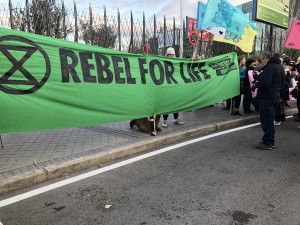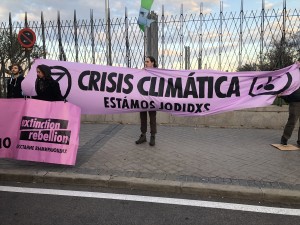Hello friends! Today marked the relatively quiet opening of COP 25 in Madrid, but the preparations for the annual conference were anything but calm.
COP 25’s original host, Brazil, backed out of its role in November of 2018 after the election of Jair Bolsonaro, whose foreign minister has stated, “there is no climate change catastrophe.” In the wake of Brazil’s withdraw, Chile offered to stage the UN event in Santiago. About a month before the conference was set to begin, however, increases in metro fares and living costs in Chile sparked nationwide protests that culminated with the Chilean government withdrawing Santiago as the host city for the COP. After Chile stepped down from its host role, our contact at the State Department, former Swarthmore professor Liz Nichols, informed us that a 2019 COP was unlikely to take place. Surprisingly, Spain almost immediately agreed to take over hosting duties and here we are!
I write all this not to give a general overview of how our delegation and the COP arrived in Madrid, but rather because the changing location of the conference has negatively impacted the proceedings. Importantly, an activist presence was notably missing from today’s session. In large part, this is a result of Chilean environmental justice folks being unable to regroup and pay for plane tickets to a new venue in a new city on a different continent. Instead of folks pushing negotiations to question market mechanisms and radically work towards 1.5C, most of the voices today operated within the conventional neoliberal models that have contributed to our climate crisis. In fact, we only observed one concrete counter-COP demonstration (see below).

It is especially important to note that fighting for climate action and protests like those in Chile are parallel struggles — against exploitation of markets. The same policies that and people who enable big polluters to exploit the planet and grow rich also force poorer people to contend with stagnating wages and higher costs of living. We will only solve our climate crisis when we begin to alleviate economic inequality and vice versa.
